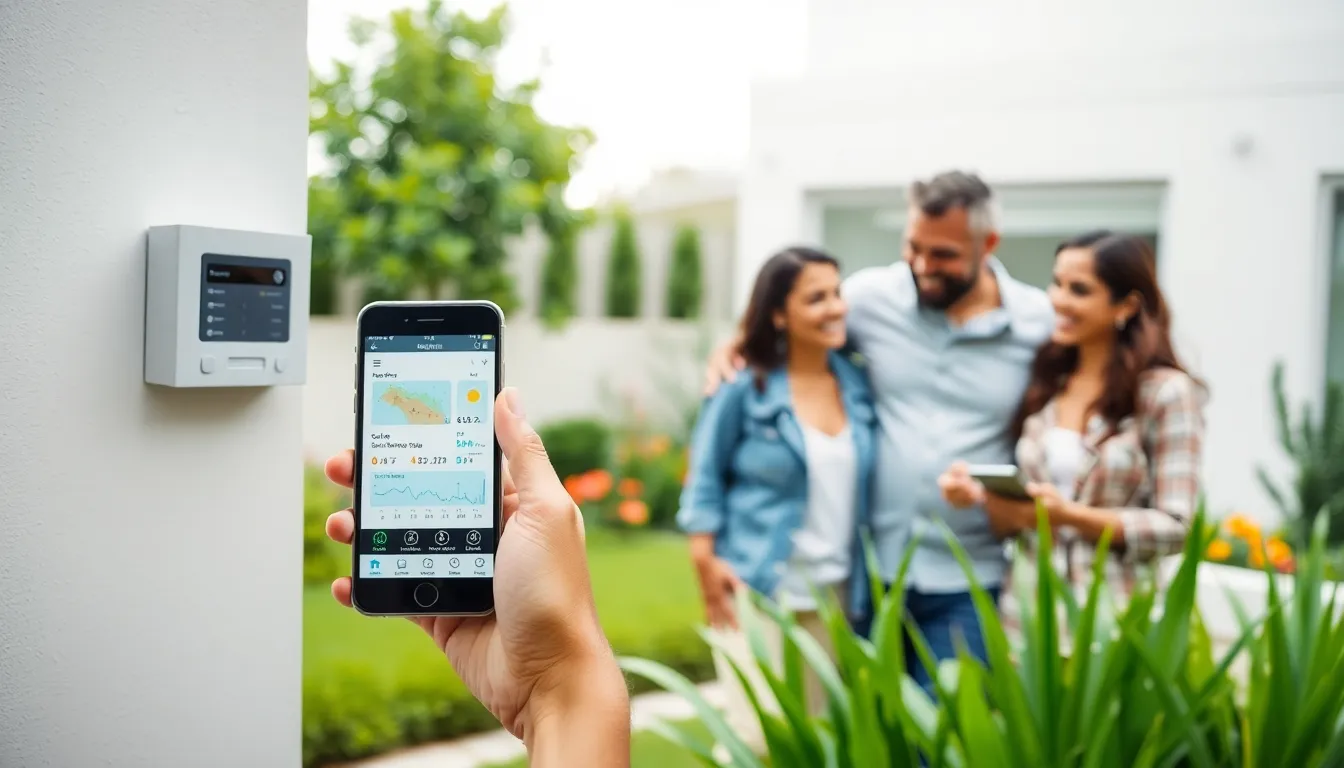In a world where lawns may demand more attention than our social lives, smart irrigation has burst onto the scene like a homecoming queen with a water hose. Imagine a system that waters your garden smarter than you could ever dream, all while you kick back on the patio. With the ability to optimize water usage and keep your plants greener than envy, smart irrigation is revolutionizing the way we think about landscaping. Besides, whether you’re into real estate or just want to keep your grass the envy of the neighborhood, understanding this technology could be the cherry on top of your property’s value cake. Buckle up as we explore the delightful complexities of smart irrigation in the realm of homestead and realty.
Table of Contents
ToggleUnderstanding Smart Irrigation Technologies

Smart irrigation technologies use advanced tools and systems to efficiently manage water supply, ensuring that landscapes receive just the right amount of moisture. At the forefront of this movement are smart controllers, which consider both real-time weather forecasts and soil conditions before deciding on water requirements. These controllers can be programmable or, even better, operated via smartphone apps, allowing homeowners to adjust settings on the go.
Also, sensors play a crucial role, measuring soil moisture levels and transmitting data back to the irrigation system. These devices can vary from basic to highly sophisticated options, where systems can automatically adapt to changes in the environment, delivering precise watering at optimal times. This innovation reduces waste and conserves water, showing promise not only for homeowners but also for large-scale agricultural operations. With technology progressing at breakneck speed, the integration of artificial intelligence and machine learning into irrigation systems is also becoming a reality: a development that could redefine urban gardening and landscaping altogether.
Benefits of Smart Irrigation Systems
The advantages of smart irrigation systems go beyond merely keeping gardens lush. One of the standout benefits is water conservation. By utilizing data-driven insights, these systems ensure that water isn’t wasted through inefficient practices. Reports indicate that smart irrigation can save up to 50% more water than traditional methods. Now that’s something Mother Nature can appreciate.
Also, with reduced water usage comes lower utility bills. Homeowners can enjoy substantial savings on their monthly water expenses. It’s like finding money in old jeans, simply delightful. Besides, smart systems decrease the labor involved in manual watering schedules, freeing up time for more enjoyable outdoor activities (or Netflix binges).
Another significant perk of smart irrigation is enhanced plant health. With proper moisture levels, plants are less stressed and are generally more resilient against pests and diseases. Often, a well-cared-for landscape boosts curb appeal, so increasing property values. It’s clear that the integration of smart irrigation systems yields benefits that ripple through both the wallet and the garden.
Key Features of Smart Irrigation Solutions
Smart irrigation solutions come equipped with an array of features designed to enhance convenience and efficiency. Firstly, weather-based scheduling is a game-changer: these systems automatically adjust watering times based on current and forecasted weather conditions. This means no more watering during a downpour, now that’s what they call smart thinking.
Secondly, soil moisture sensors are another key player. By continuously monitoring the moisture levels in the soil, these sensors ensure that gardens only receive water when truly needed. No more guessing games, just straightforward hydrating. Also, many smart systems allow remote access via mobile apps. Homeowners can easily manage irrigation schedules, receive push notifications about moisture levels, and even shut off systems remotely. Who knew managing a garden could feel so luxurious?
Some systems even integrate with other smart home devices, creating seamless automation. Imagine creating a ‘garden party’ schedule: your sprinkler system knows when the guests arrive, ensuring a beautiful, thirst-quenching landscape as you toast to your brilliant taste in real estate investments.
Challenges and Considerations in Implementation
Even though the myriad advantages of smart irrigation systems, implementing them isn’t without challenges. For starters, initial costs can be a barrier. Investment in high-quality equipment and installation may be significantly higher than traditional methods. But, many find that the long-term savings overshadow these upfront costs.
Another consideration involves technical issues. Homeowners may encounter compatibility problems with existing plumbing or landscaping setups. Proper assessment before installation is crucial to ensure that the new system integrates smoothly. Also, some systems require a stable internet connection to operate optimally. Those living in areas with spotty Wi-Fi might find themselves in a sticky situation.
Also, there’s a learning curve. Homeowners must familiarize themselves with the technology before reaping its benefits: this can create frustration for those less inclined toward tech. Eventually, careful consideration and planning can help navigate these challenges, leading to a successful smart irrigation setup.
Real Estate Impact of Smart Irrigation
Smart irrigation doesn’t just elevate lawn aesthetics: it packs a punch when it comes to real estate value. In a competitive housing market, homes equipped with advanced landscaping irrigation systems are likely to catch the eye of environmentally conscious buyers. When it comes to curb appeal, having a lush, well-maintained garden can make a lasting impression.
Besides, properties that demonstrate energy efficiency often command better prices. As buyer preferences shift towards sustainable living, homes with smart irrigation showcase a commitment to conserving natural resources, positioning them favorably in the market.
In fact, real estate agents report that listings featuring smart irrigation systems often sell faster than their traditional counterparts. Also, the perceived value of a property can rise, allowing sellers to justify asking prices that reflect the investment in smart technologies. As property owners look to enhance their homes, smart irrigation presents a valuable opportunity to increase return on investment.
Future Trends in Smart Irrigation Technology
The future of smart irrigation looks promising, with innovations continuously reshaping how homeowners and farmers think about watering their plants. One key trend involves increased integration of AI and machine learning, empowering systems to learn from irrigation history and environmental changes. This adaptation will lead to even more precise watering schedules tailored to the unique needs of each landscape.
Also, real-time water tracking could become more prevalent, allowing users to monitor their water usage closely. Imagine having historical insights right at your fingertips. This data can help homeowners identify areas for further conservation, eventually leading to smarter water management.
Besides, smart irrigation is increasingly becoming part of green building certifications, as cities and states recognize the importance of sustainable practices in urban planning. This movement hints at exciting collaborations between technology and infrastructure, promising a future where gardens and landscapes thrive while preserving our precious water resources.



